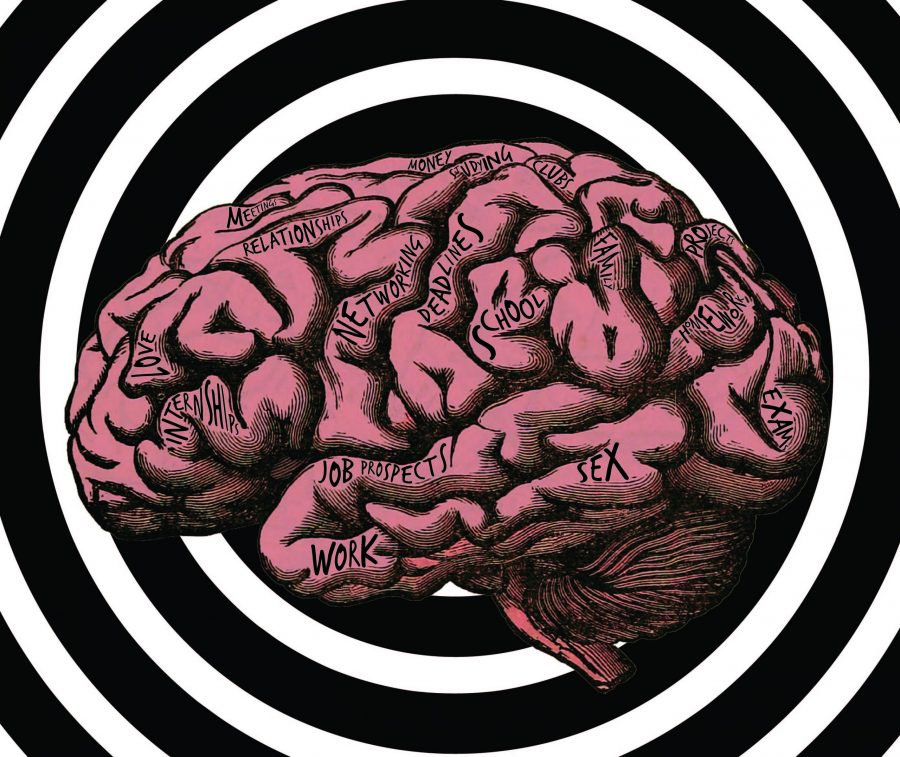Millennials have become the butt of baby-boomers’ jokes. Millenials have been on the receiving end of intentional attacks over workplace-readiness. Baby-boomers feel that millennials are entitled and unambitious, and this image is portrayed in news broadcasts and articles, advertisements, television shows, movies, books and word of mouth. With such radical views about millennials’ preparedness for the workplace, it’s not surprising that many millennials strive to disprove the stereotype.
College students in particular strive the hardest to break this mold. College in the 21st century has become increasingly difficult to complete. Most students are juggling a job, a full set of classes, an internship, and personal or financial responsibilities. With all these responsibilities, each student is at risk of finding a breaking point where the pressure of all these responsibilities takes a toll on their mental state. The National Alliance on Mental Illness states that more than 75 percent of mental health conditions start before the age of 24.
Most students I discuss this topic with are immediately interested in discussing their own emotional or mental issues concerning college. They express that the pressures surrounding them and a lack of free time are major contributors to break downs, where their mental state is flooded with anxiety, and it becomes difficult to continue any work. Mental breaks are the body’s way of telling us to slow down and step back from our work for a few minutes.
College students are often flooded with classwork, family obligations, extracurricular activities, job duties and post-graduation plans. With all these responsibilities and expectations, one will have to expel one responsibility to avoid a break down, or worse, the development of a mental illness.
For college students, self-inflicted abuse often springs from feelings of inadequacy, lack of belonging or loneliness. A few days before Christmas, a former middle school friend of mine took his own life while attending college. I became overwhelmed with emotions and memories of him, and wondered why he took his own life. My first thought was that it made no sense. He had always been one of the smartest guys I knew. He had seemed happy and eager to finish his degree at the large university he attended. However, underneath this image he had been suffering from depression—this is the side that goes unnoticed. We often don’t see the signs of depression, or discount them as a sign that the student is just ordinarily sad or “having an off-day.”
If you or someone you know is struggling with adjusting to the heavy load of college responsibilities, ask them to step back and look at the big picture. What responsibilities can you remove from your life? Are you asking for help on lessening your load? Do you find yourself coping or relying on drugs or alcohol?
My tips for lessening burdens or responsibilities are to eliminate non-essential obligations, use a firm schedule for certain obligations to prevent them from overtaking your life, lessen impulses towards unhealthy eating or behaviors, and try to allot time towards a physical activity of your choosing. Use physical activity to clear your head, focus on deep breathing and rejuvenate your body.
The expectations for millennials are being raised daily; however, we must take care of ourselves and help others who are dealing with depression. I urge you to sincerely ask a peer or friend who might be showing signs of depression if they are truly alright and if they need any help. Many suffering with depression will be reluctant to receive any help, so offer your shoulder to them in their time of need. If you may be experiencing depression, contact UTSA Counseling Services at 210-458-4140, or visit them at the Rec Wellness Center in 1.810 on the Main Campus, or at the Frio Street Building in 4.556.






